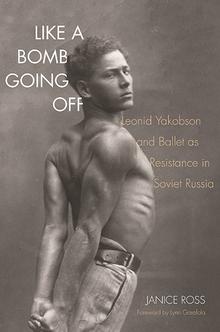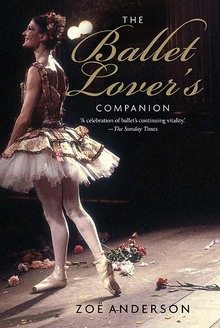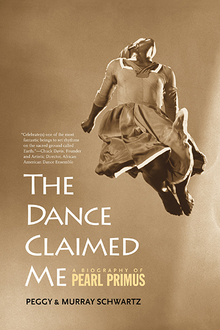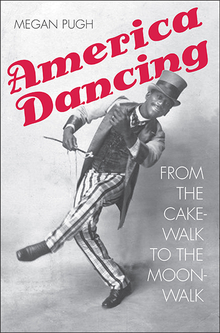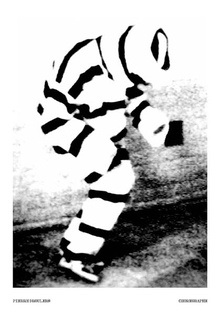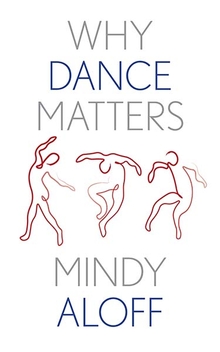Like a Bomb Going Off
WARNING
You are viewing an older version of the Yalebooks website. Please visit out new website with more updated information and a better user experience: https://www.yalebooks.com
Leonid Yakobson and Ballet as Resistance in Soviet Russia
Janice Ross; Foreword by Lynn Garafola
The powerfully moving story of the Russian Jewish choreographer who used dance to challenge despotism
Everyone has heard of George Balanchine, but few outside Russia know of Leonid Yakobson, Balanchine’s contemporary and arguably his equal, who remained in Lenin’s Russia and survived censorship during the darkest days of Stalin. Like Shostakovich, Yakobson suffered for his art and yet managed to create a singular body of revolutionary work that spoke to the Soviet condition. His ballets were considered so explosive that their impact was described as “like a bomb going off.”
Challenged rather than intimidated by the restrictions imposed by Soviet censors on his ballets, Yakobson offered dancers and audiences an experience quite different from the prevailing Soviet aesthetic. He was unwilling to bow completely to the state’s limitations on his artistic opportunities, so despite his fraught relations with his political overseers, his ballets retained early-twentieth-century movement innovations such as turned-in and parallel-foot positions, oddly angled lifts, and eroticized content, all of which were anathema to prevailing Soviet ballet orthodoxy. For Yakobson, ballet was a form of political discourse, and he was particularly alive to the suppressed identity of Soviet Jews and officially sanctioned anti-Semitism. He used dance to celebrate reinvention and self-authorship—the freedom of the individual voice as subject and medium. His ballets challenged the role of the dancing body during some of the most repressive decades of totalitarian rule.
Yakobson’s work unfolded in a totalitarian state, and there was little official effort to preserve his choreographic archive or export knowledge of him to the West—gaps that dance historian Janice Ross seeks to redress in this book. Based on untapped archival collections of photographs, films, and writings about Yakobson’s work in Moscow and St. Petersburg for the Bolshoi and Kirov ballets, as well as interviews with former dancers, family, and audience members, this illuminating and beautifully written study brings to life a hidden history of artistic resistance in the Soviet Union through the story of a brave artist who struggled his entire life against political repression yet continued to offer a vista of hope.
Everyone has heard of George Balanchine, but few outside Russia know of Leonid Yakobson, Balanchine’s contemporary and arguably his equal, who remained in Lenin’s Russia and survived censorship during the darkest days of Stalin. Like Shostakovich, Yakobson suffered for his art and yet managed to create a singular body of revolutionary work that spoke to the Soviet condition. His ballets were considered so explosive that their impact was described as “like a bomb going off.”
Challenged rather than intimidated by the restrictions imposed by Soviet censors on his ballets, Yakobson offered dancers and audiences an experience quite different from the prevailing Soviet aesthetic. He was unwilling to bow completely to the state’s limitations on his artistic opportunities, so despite his fraught relations with his political overseers, his ballets retained early-twentieth-century movement innovations such as turned-in and parallel-foot positions, oddly angled lifts, and eroticized content, all of which were anathema to prevailing Soviet ballet orthodoxy. For Yakobson, ballet was a form of political discourse, and he was particularly alive to the suppressed identity of Soviet Jews and officially sanctioned anti-Semitism. He used dance to celebrate reinvention and self-authorship—the freedom of the individual voice as subject and medium. His ballets challenged the role of the dancing body during some of the most repressive decades of totalitarian rule.
Yakobson’s work unfolded in a totalitarian state, and there was little official effort to preserve his choreographic archive or export knowledge of him to the West—gaps that dance historian Janice Ross seeks to redress in this book. Based on untapped archival collections of photographs, films, and writings about Yakobson’s work in Moscow and St. Petersburg for the Bolshoi and Kirov ballets, as well as interviews with former dancers, family, and audience members, this illuminating and beautifully written study brings to life a hidden history of artistic resistance in the Soviet Union through the story of a brave artist who struggled his entire life against political repression yet continued to offer a vista of hope.
Janice Ross, a professor in the Theater and Performance Studies Department and director of the Dance Division at Stanford University, is the former dance critic for the Oakland Tribune. She is the author of San Francisco Ballet at 75, Anna Halprin: Experience as Dance, and Moving Lessons: Margaret H’Doubler and the Beginning of Dance in American Education. She lives in Atherton, CA.
Visit leonidyakobson.com for more on the book and the author.
'Ross is a passionate advocate, ardently evoking his surviving ballets and why his work, and his courage, meant so much to Soviet audiences.'-Zoe Anderson, The Independent
"How wonderful that there is a new book about Leonid Yakobson, this unique and genius choreographer. I am happy to have been his muse, and I deeply appreciate his profoundly meaningful influence on the way I danced, which continued to shape my development throughout my career."—NATALIA MAKAROVA
"Peerless: a heartbreaking account of the distance between a choreographer's intentions and their staged realizations, a page-turning story of one Promethean life, and the most revealing of cultural studies about ballet's perversion by politics."—MINDY ALOFF, author of Hippo in a Tutu: Dancing in Disney Animation
"On the face of it, ballet is the least political of the arts. Yet in the Soviet Union even dancing came under state scrutiny. Like a Bomb Going Off tells the story of a remarkably courageous dancer, Leonid Yakobson, who first as a performer and then as choreographer came to irritate the Soviet authorities, to suffer punishments, and yet never gave up the fight for his art."—RICHARD PIPES, Harvard University, emeritus, author of A Consise History of the Russian Revolution
"Leonid Yakobson was one of the most influential choreographers of his time, yet until now he has gone largely unrecognized. Thanks to Janice Ross, this extraordinary artist, who deserves the praise of the dance world and beyond, is brought to life in this revelatory, important book."—MIKKO NISSINEN, artistic director, Boston Ballet
"Ambitious and fascinating . . . This admirably researched and well-written book throws a sharply focused light on a truly extraordinary artist and courageous human being."—Rita Feliciano, Dancers' Group
“Revolutionary Russian-Jewish choreographer Leonid Yakobson comes alive in Janice Ross’s Like a Bomb Going Off.”—Vanity Fair
“Utterly engrossing . . . A landmark study . . . Like a Bomb Going Off is by turns infuriating and uplifting; it will leave its readers maddened by the predictable fear of imagination shared by all totalitarian regimes but also thrilled that stories of courage such as Yakobson’s are possible in such regimes at all."—Steve Donoghue, Open Letters Monthly
"In 1975 the Moscow critic Vadim Gayevsky wrote, 'Time passes, but Yakobson’s place in our ballet does not change. Eternal avant-gardist. Eternal free thinker. The sharpest poet with the best sense of humor and the poet of sharp humor. Spiritual colleague of Rodin, Chagall and Shostakovich. Who else can boast of titles like that?' That quote is included in this book, and God knows I cannot compete with the eloquence of Mr. Gayevsky. I salute Janice Ross for allowingus to peek behind the curtain of Yakobson’s extraordinarily creative life. His personal struggle for freedom - in life and in his art - was exemplary knowing the time and the place in which he fought to make his dreams and ideas into theatrical reality."?—MIKHAIL BARYSHNIKOV
'In her new book, Like A Bomb Going Off, Janice Ross of Stanford University turns up the volume on this courageous 'voice of dissent'.'—Dance Gazette
‘… with so much of Yakobson’s creativity lost and unrecorded, Ross is to be congratulated for finally giving him his due as the equal of Balanchine. One wonders why this genius of modernballet is not better known.’—Anne Sebba, Jewish Chronicle.
“[A] labor-of-love account of a man who no doubt deserved far more recognition for his courage, innovation and indomitable spirit than he received.”—Roslyn Sulcas, New York Times
“Illuminating . . . Ross is right: The story of this artist, all but unknown in the West, is a 'hidden yet monumental tale' about an unruly genius who proved that Westerners weren’t the only ones turning ballet into a modern art.”—Sarah Kaufman, Washington Post
“A fantastic new book.”—Daily Beast
‘Janice Ross has written a timely book and made a large contribution to dance scholarship…’—Mike Dixon, Dance Europe.
“Without Balanchine, the thinking goes, ballet would have buried itself in the past—and indeed, since the master’s death, in 1983, it has struggled to chart a future… Janice Ross soundly rejects this self-congratulatory and ultimately self-defeating account . . . She delivers on her claim that ‘during the initial years of the Cold War, the West did not have an exclusive purchase on experimentation in dance.’ The book’s timing could not be better . . . Yakobson is the ideal figure on whom to focus a corrected and expanded ballet history.”—Apollinaire Scherr, Atlantic
“Like a Bomb Going Off is a lively and exciting read.”—Olga Seliazniova, Slavic and East European Journal
ISBN: 9780300207637
Publication Date: January 13, 2015
Publication Date: January 13, 2015
536 pages, 6-1/8 x 9-1/4
61 b/w illus.
61 b/w illus.

